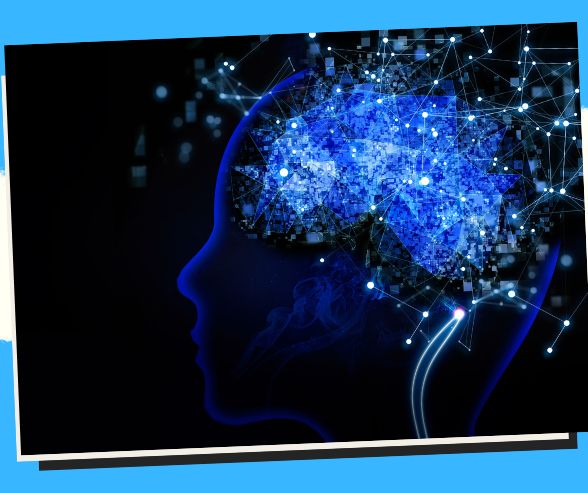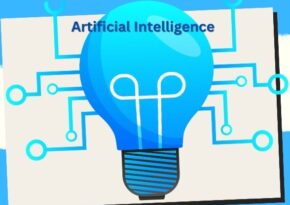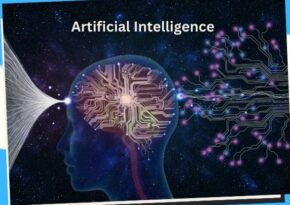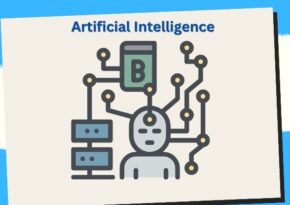
🤖 AI for All: Enabling Inclusivity Through Assistive Technology 🌐
🤖 Explore the world of AI for inclusivity, where assistive technology bridges gaps and promotes equal opportunities. Learn how AI is reshaping the landscape of accessibility for all.
🌐 Navigating the Future: Addressing AI’s Impact on Job Displacement 🤖🤝
The rise of Artificial Intelligence (AI) has unleashed a wave of innovation and transformation across industries, promising enhanced efficiency, productivity, and convenience. However, this rapid advancement in AI technology has also raised concerns about job displacement. As AI systems become increasingly capable of automating tasks and processes, there is a growing need to address the impact on employment. This article delves into the multifaceted issue of AI’s impact on job displacement, exploring its significance, underlying principles, real-world applications, challenges, and potential strategies for a balanced future.
Understanding AI’s Impact on Job Displacement
🤖 What Is AI’s Impact on Job Displacement?
AI’s impact on job displacement refers to the process by which AI technologies automate tasks traditionally performed by humans, potentially leading to changes in employment opportunities and roles. While AI offers unprecedented capabilities, it also poses challenges related to workforce dynamics, job roles, and economic shifts.
💡 The Essence of AI’s Impact on Job Displacement
The essence of AI’s impact on job displacement can be distilled into several key principles:
- Automation: AI automates routine, repetitive, and manual tasks, reducing the need for human intervention.
- Task Specialization: AI can perform specialized tasks, optimizing specific industry functions.
- Skill Evolution: Job roles may evolve, requiring different skill sets incorporating AI collaboration.
- Economic Shifts: Job displacement can lead to changes in employment trends, wages, and industry dynamics.
- Potential for Creativity: AI’s role in automating tasks may free up time for human workers to focus on creative and strategic aspects of their jobs.
Applications of AI’s Impact on Job Displacement
🌐 Across Industries
AI’s impact on job displacement has diverse applications across various industries, altering the landscape of employment and work:
- Manufacturing: AI-driven robotics automate assembly line tasks, reducing the need for manual labor.
- Retail: Self-checkout kiosks and automated inventory management systems streamline retail operations.
- Customer Service: Chatbots and virtual assistants handle customer inquiries, reducing the demand for human agents.
- Finance: AI algorithms automate trading and risk assessment, altering job roles in finance.
- Healthcare: AI assists in diagnostics and medical imaging, potentially changing the roles of radiologists and medical practitioners.
- Transportation: Self-driving vehicles can potentially impact jobs in the transportation industry.
Challenges in Addressing AI’s Impact on Job Displacement
🧩 The Complex Landscape
Addressing AI’s impact on job displacement presents several challenges:
- Reskilling and Upskilling: Preparing the workforce for new roles and skill sets is challenging.
- Job Transition: Facilitating job transition for displaced workers can be complex and resource-intensive.
- Economic Equity: Ensuring that the benefits of AI do not exacerbate economic disparities is crucial.
- Ethical Concerns: Ethical considerations, such as transparency, accountability, and fairness, must guide the impact of AI on employment.
- Job Quality: Ensuring that new job opportunities offer quality employment with fair wages and benefits.
Strategies to Address AI’s Impact on Job Displacement
🤝 Balancing AI Innovation and Employment
Addressing AI’s impact on job displacement requires a multifaceted approach, including the following strategies:
- Reskilling and Upskilling: Invest in training and educational programs to equip the workforce with the skills needed for the AI-driven job landscape.
- Support for Transition: Develop support systems and policies to facilitate the transition of displaced workers into new roles or industries.
- Ethical AI Practices: Implement ethical guidelines and regulations that ensure responsible AI deployment, prevent bias, and promote fairness in the workplace.
- Job Creation: Encourage the development of AI-related job roles and industries, creating new opportunities for workers.
- Universal Basic Income: Explore the potential for universal basic income or other social safety nets to mitigate economic disparities caused by job displacement.
- Collaboration: Foster collaboration between industry leaders, governments, and educational institutions to address workforce challenges proactively.
The Future of AI and Employment
🚀 Beyond the Horizon
The future of AI and employment holds numerous exciting possibilities:
- AI-Enhanced Work: AI will become a valuable tool that augments human capabilities, enhancing productivity and efficiency in various fields.
- Job Evolution: As AI automates routine tasks, job roles will evolve to incorporate creative thinking, problem-solving, and strategic decision-making.
- Innovation: AI will drive innovation and create entirely new industries, sparking job opportunities that we cannot yet foresee.
- Cross-Disciplinary Collaboration: Collaboration between AI experts and professionals in other domains will be crucial for leveraging AI effectively.
- Ethical AI: Ethical considerations will guide the development and deployment of AI systems, ensuring fairness and accountability.
Conclusion
AI’s impact on job displacement is a complex and evolving issue that demands careful consideration, collaboration, and adaptation. While AI offers immense potential for automation and efficiency, it also presents challenges related to workforce dynamics and employment trends. By embracing strategies prioritizing reskilling, ethical AI practices, and job creation, we can confidently navigate the future, ensuring that AI enhances human potential rather than replacing it. The future of employment is not just about what jobs we lose, but also about the opportunities we create, the skills we develop, and the innovative horizons we explore in the age of AI.🌐🤖🤝
Related Queries
🌟 Empowering Abilities: How AI Assistance Transforms Lives 💪
👥 Bridging Gaps: The Role of AI in Enhancing Disability Support 🚀
🦾 Unleash Potential: How AI Empowers Individuals with Disabilities 🚁
🌈 Inclusive Tech: How AI Assistance Levels the Playing Field 🏆
💡 Breaking Barriers: AI’s Impact on Accessibility and Disability 🌠
👩💻 Revolutionizing Support: AI-Powered Solutions for Disabilities 📈
📚 Accessible Tomorrow: AI’s Contribution to Disability Assistance 🌅
🤝 AI and Disabilities: A Partnership for Empowerment 🧠
🔗 Embracing Possibilities: How AI Opens New Avenues for Disabilities 🏥
Save/Share this story with QR CODE
Disclaimer
This article is for informational purposes only and does not constitute endorsement of any specific technologies or methodologies and financial advice or endorsement of any specific products or services.
📩 Need to get in touch?
Feel free to Email Us for comments, suggestions, reviews, or anything else.
We appreciate your reading. 😊Simple Ways To Say Thanks & Support Us:
1.) ❤️GIVE A TIP. Send a small donation thru Paypal😊❤️
Your DONATION will be used to fund and maintain NEXTGENDAY.com
Subscribers in the Philippines can make donations to mobile number 0917 906 3081, thru GCash.
3.) 🛒 BUY or SIGN UP to our AFFILIATE PARTNERS.
4.) 👍 Give this news article a THUMBS UP, and Leave a Comment (at Least Five Words).
AFFILIATE PARTNERS

World Class Nutritional Supplements - Buy Highest Quality Products, Purest Most Healthy Ingredients, Direct to your Door! Up to 90% OFF.
Join LiveGood Today - A company created to satisfy the world's most demanding leaders and entrepreneurs, with the best compensation plan today.



 Business Technology, Finance Technology & Information Technology
Business Technology, Finance Technology & Information Technology





